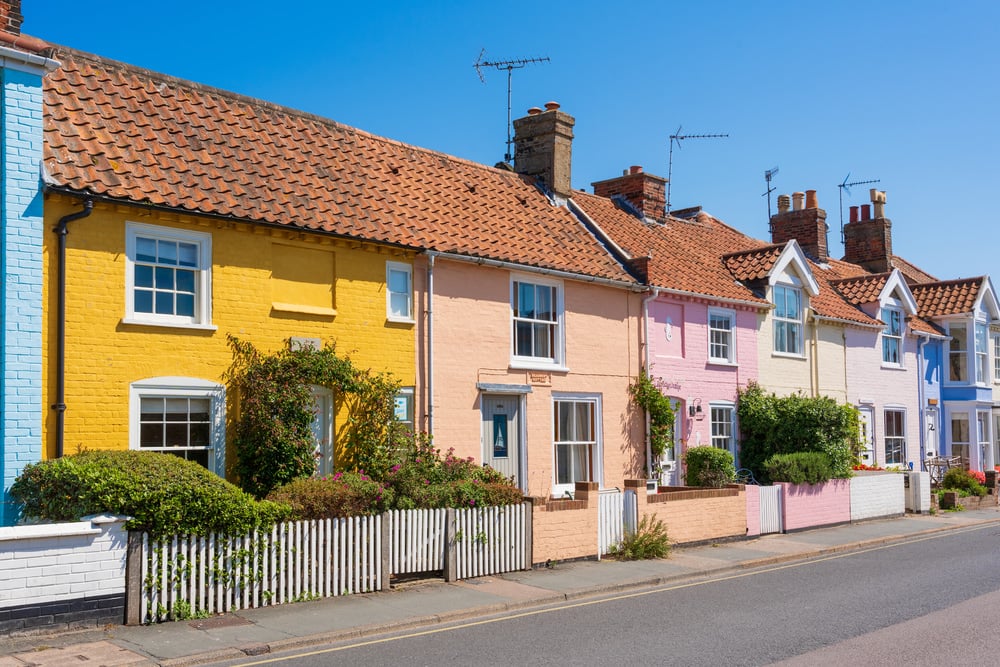Days
Hours
Minutes
Seconds
May 1 2026 - Renters' Right Act Commencement Day
You have 0 days to:
Serve any final Section 21 notices
Stop accepting above-asking rent offers
Prepare for the rental bidding ban
Remove “No DSS” from adverts
Remove “No Children” from listings
Show one clear rent price
Stop using fixed-term agreements
Switch to periodic tenancy templates
Check which tenancies go periodic
Stop taking rent before signing
Take no more than one month’s rent
Move all evictions to Section 8
Train staff on new notice rules
Create Section 13 process flow
Add two months to rent reviews
File court claims for Section 21s
Update landlord move-in grounds
Update landlord selling grounds
Send the RRA Information Sheet
Create written terms where missing
Update How to Rent processes
Review tenant screening questions
Update pet request processes
Stop backdating rent increases
Discuss rent protection backbooks
Act now before it is too late...
Your guide to what's changing for short-term lets and second homes in England and Wales
Here's an overview of the governments planned measures for short-let properties, holiday homes, and second homes in England and Wales.
The Goodlord team
Feb 19, 2024
The government has confirmed its plans to introduce a registration scheme for short-term let properties in England. This is to supplement the previous announcements that:
- Second homes need to be rented out for a minimum of 70 days per year to access small business rate relief since April 2023, rather than paying council tax
- Councils will be granted powers to impose higher rates of council tax on empty and second homes - although a new consultation suggests landlords may see a grace period on these rules
Wales is also currently consulting on a new licensing scheme for short-term lets.
Here's what's covered in this guide:
- What are the new planning rules for short-term lets
- What tax rules are currently in place for short-let properties?
- How are the tax rules changing?
- What do the new rules aim to achieve?
- What else has been proposed to regulate the short-term let sector in England?
- What else has been proposed to regulate the short-term let sector in Wales?
- What is the impact of short-term lets on local communities?
- What regulation for short-term lets is in place in other countries?
What are the new planning rules for short-term lets?
New proposed rules (from February 2024) have been announced to introduce a planning "use class" for short-term lets that are not used as part of a sole or main home.
This new introduction will support local residents in areas who are finding it difficult to afford or buy housing due to high numbers of short-term lets, and prevent communities from "hollowing out".
A mandatory national register will also be introduced to local authorities to give local authorities an idea of the amount of short-term lets in one area.
Homes that are already dedicated as short-term lets won't need to apply for a planning application, and instead be automatically reclassified into the new "use class".
The Secretary of State for Levelling Up, Michael Gove, says "[These proposed changes] will allow local communities to take back control and strike the right balance between protecting the visitor economy and ensuring local people get the homes they need.
What tax rules are currently in place for short-let properties?
As it stands, second home owners can access small business rates relief by declaring an "intention to let" the property out to holidaymakers for short periods totalling a minimum of 140 days per year. Colliers has reported that this loses local authorities £110 million a year due to the lack of proof required.
For empty homes not eligible for business rate relief, they currently must pay council tax but the local council can decide to give a discount - although a council tax premium would need to be paid if the property was empty for two or more years.
How are the tax rules changing?
To benefit from business rate relief from April 2023, second home owners will need to prove that they have let their properties out for a minimum of 70 days, and be "available" to let out for a minimum of 140 days.
The website or brochure used to advertise the property, letting details and receipts could all be used to prove that the property meets this criteria.
The government has also confirmed that it will give councils the power to double the standard council tax rate on any home left empty for longer than a year, rather than two years as is currently the case. This amendment would be included in the Levelling-up and Regeneration Bill, which is currently on its second reading in the House of Commons.
However, the government is currently considering giving properties that are being marketed to let a six month grace period, before they then fall into the higher tax bracket. The government's consultation on the topic closes on 31 August 2023.
What do the new rules aim to achieve?
The new rules on council tax will encourage more empty homes "back into productive use, while raising additional revenue to support local services and keep council tax down for local residents."
On the topic of closing the tax loophole around business rates, the Secretary of State for Levelling Up, Michael Gove, says that the need to prove that a property is a genuine holiday let "will create a fairer system, ensuring that second homeowners are contributing their share to the local services they benefit from."
However, in a recent debate in the House of Lords, the Minister for Building Safety and Fire, Lord Greenhalgh, says that "96% of second homes pay council tax in full, even though they may use local services only on an occasional basis".
He highlights that in the sharing economy, where property owners meet the current threshold, it is "reasonable" for them to benefit from the business rates system instead of council tax.
What else has been proposed to regulate the short-term let sector in England?
The government also committed in June 2021 to look into the possibility of a "tourist accommodation registration scheme" in England, through the Tourism Recovery Plan, an approach that was confirmed in the new measures announced for the Levelling Up and Regeneration Bill in December 2022.
A consultation has been launched into whether new short-term lets would need planning permission, particularly in tourist hotspots.
MP Tim Farron, who first proposed doubling council tax on empty second homes in January 2022, has also proposed a "seven point plan to limit the number of second homes", to help solve the housing crisis.
What else has been proposed to regulate the short-term let sector in Wales?
The Co-operation Agreement between the Welsh government and Plaid Cymru previously committed to create a statutory licensing scheme for holiday lets.
This is part of a package of measures "to address the negative impact second homes and short-term holiday lets can have on the availability and affordability of housing for local people in our communities."
A scheme would aim to "provide a comprehensive database" to help monitor how many visitor accommodation businesses operate in Wales, and to help the government understand the "scale and nature" of this sector.
A consultation on the scheme closed on 17 March 2023. The government plans to bring forward a scheme, with some decisions on how the scheme will run still to be made.
What is the impact of short-term lets on local communities?
Short-term lets is a growing segment of the hospitality and rental sectors. While giving tenants more flexibility in the short term and often providing them with a cheaper alternative to traditional holiday accommodation, concerns include their impact on local housing markets - where an influx of investors of holiday lets may mean fewer long term rentals available - and compliance with tax and health and safety regulations.
Lord Greenhalgh shared that the impact of any legislation introduced would be difficult to define, as "in some areas where tourism is incredibly important it is a great boost to the economy, and in others it can result in the hollowing out of a particular area".
What regulation for short-term lets is in place in other nations?
Currently, tourist accommodation in Northern Ireland requires certification.
Scotland has also introduced a licensing scheme for short-term lets, to support its existing "control areas", which will "help manage high concentrations of secondary letting".
This article is intended as a guide only and does not constitute legal advice. For more information, visit gov.uk.
Want the latest lettings new delivered straight to your inbox every week? Sign up to our mailing list and stay up to date.






.jpg)
.jpg)
